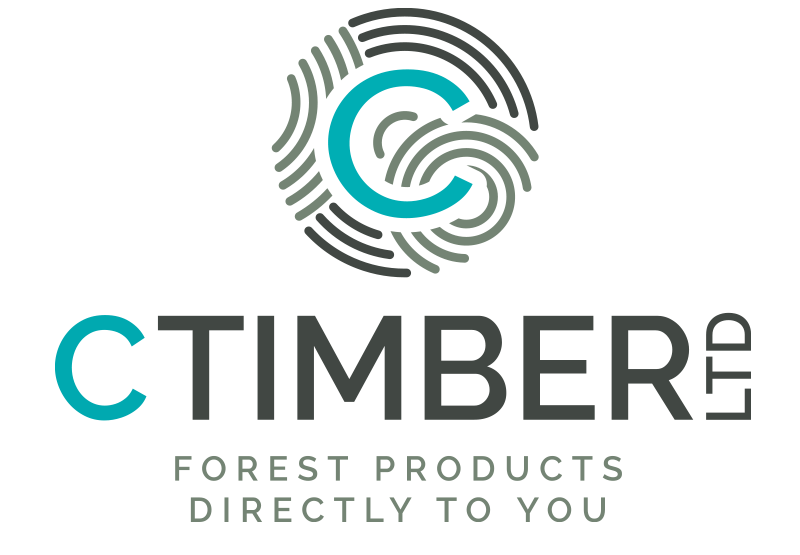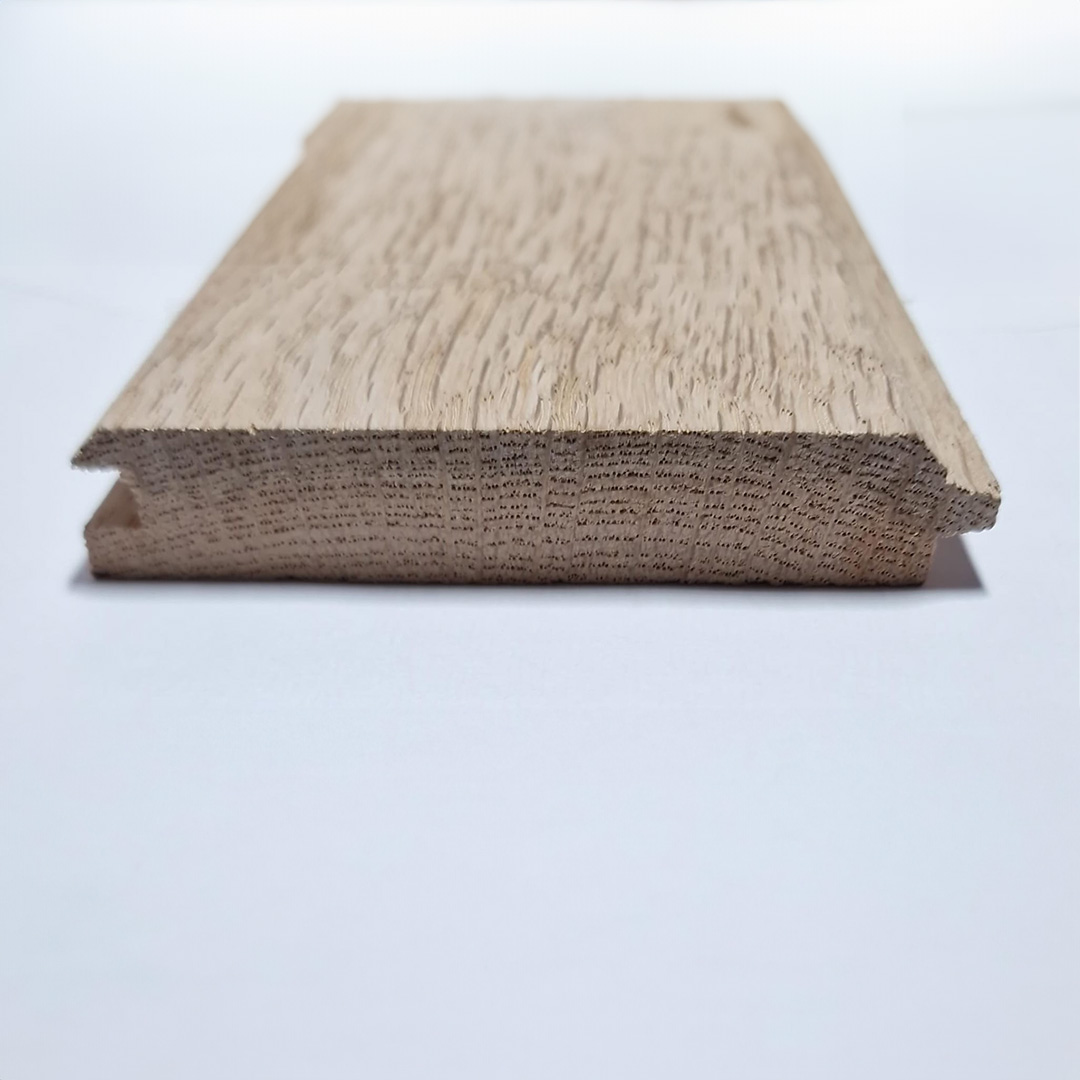When it comes to enhancing the exterior of your home or building, cladding is one of the most transformative options available. Not only does quality cladding dramatically improve aesthetics, but it also provides essential protection against the elements while potentially improving thermal insulation. With numerous materials and profile options on the market, making the right choice for your specific needs can seem daunting. In this guide, we’ll explore our comprehensive range of both softwood and oak cladding options to help you make an informed decision.
Softwood Cladding Options
Softwood cladding remains one of the most popular and cost-effective choices for exterior walls. Here’s a detailed look at our softwood cladding range:
Shiplap Cladding
Shiplap features distinctive horizontal boards that slightly overlap, creating a small channel between planks that provides excellent water runoff. This traditional profile offers:
- Clean, contemporary lines that suit both modern and traditional buildings
- Effective water shedding due to the sloped overlap design
- Relatively easy installation, making it suitable for DIY enthusiasts
- Good expansion tolerance in changing weather conditions
Shiplap is particularly popular for garden buildings, home extensions, and coastal properties where water resistance is crucial.
TGV (Tongue and Groove Vertical) Cladding
TGV cladding features interlocking boards with a smooth, flush finish, creating a sleek, continuous surface. Benefits include:
- A clean, uniform appearance with minimal visible joins
- Excellent protection against water penetration due to the interlocking system
- Versatility in installation direction (can be installed horizontally or vertically)
- Superior stability and resistance to warping
TGV is ideal for contemporary buildings where a smooth, consistent facade is desired.
Loglap Cladding
Loglap combines the water-shedding properties of shiplap with a curved face profile that mimics the appearance of traditional log cabins. Key features include:
- Distinctive rustic appearance that adds character
- Good water-shedding capabilities
- Effective insulation properties due to the thicker profile
- Creates a cozy, traditional aesthetic
This profile is perfect for garden rooms, cabins, and properties seeking a countryside aesthetic.
Landscape Batten
Landscape battens offer a more modern, architectural approach to wooden cladding. This style features:
- Vertical timber battens with spacing between each piece
- Contemporary, linear aesthetic that creates interesting shadow lines
- Excellent ventilation behind the cladding
- Opportunity for creative installation patterns
This option works particularly well for modern homes and commercial buildings looking to make a design statement.
Oak (Hardwood) Cladding Options
Oak cladding represents a premium choice that combines exceptional durability with stunning natural characteristics. Our oak cladding options include:
Oak TGV
Similar to its softwood counterpart, Oak TGV features the same tongue and groove profile but with all the superior qualities of hardwood:
- Exceptional dimensional stability
- Natural resistance to insects and fungi
- Beautiful grain patterns that enhance with age
- Significantly longer lifespan than softwood alternatives
Oak TGV is an investment that pays dividends in longevity and aesthetics for high-end residential and commercial projects.
Waney Edge Oak
Waney edge (also known as live edge) oak cladding retains the natural edge of the timber, creating a truly organic, rustic appearance:
- Each board is unique with natural character and variations
- Creates a striking, naturalistic exterior
- Develops a beautiful silver-grey patina over time
- Provides excellent weather protection with proper installation
This distinctive cladding option is perfect for nature-inspired architecture, eco-homes, and buildings seeking to blend with natural surroundings.
Featheredge Oak
Oak featheredge cladding features boards that are thicker at one edge and taper to a thinner edge, installed with an overlap:
- Traditional weatherboarding appearance
- Excellent water-shedding capabilities
- Creates an attractive shadow line between boards
- Superior durability in exposed locations
Featheredge oak cladding is particularly well-suited to traditional buildings, barn conversions, and heritage projects.
Softwood vs. Oak Cladding: Understanding the Differences
When choosing between softwood and oak cladding, several key differences should inform your decision:
Durability and Lifespan
Softwood Cladding:
- Typically lasts 15-30 years with proper treatment and maintenance
- Requires more frequent treatment to maintain protection
- More susceptible to insect damage and rot
- Cost-effective initial investment
Oak Cladding:
- Can last 50+ years with minimal maintenance
- Contains natural oils and tannins that resist decay
- Highly resistant to insect infestation
- Higher initial cost but better long-term value
Appearance and Aging
Softwood Cladding:
- Generally lighter in color when new
- Can be more easily stained to achieve different colors
- May develop uneven coloration without regular maintenance
- Softer grain patterns
Oak Cladding:
- Rich, warm honey tones when fresh
- Develops a distinguished silver-grey patina over time
- More pronounced and distinctive grain patterns
- Ages with character, often improving aesthetically over time
Environmental Impact
Softwood Cladding:
- Typically sourced from faster-growing, managed forests
- Lower energy requirements during processing
- May require chemical treatments for durability
Oak Cladding:
- Slower-growing but extremely long-lasting
- Higher embodied energy due to processing requirements
- Often requires fewer chemical treatments due to natural durability
- Carbon sequestration benefits extend throughout its longer lifespan
Maintenance Requirements
Softwood Cladding:
- Requires treatment every 2-5 years depending on exposure
- May need occasional board replacement over its lifetime
- Generally easier to work with for repairs
Oak Cladding:
- Can remain untreated in many applications
- Minimal maintenance beyond occasional cleaning
- Extremely stable with less movement, warping, or splitting
- Harder to cut and work with when repairs are needed
Choosing the Right Cladding for Your Project
When selecting the perfect cladding for your exterior walls, consider these factors:
- Budget: While softwood offers excellent value, oak provides superior longevity that may justify the higher initial investment.
- Aesthetic Goals: Consider how each profile and wood type aligns with your design vision and the architectural style of your building.
- Exposure Conditions: More exposed locations may benefit from the enhanced durability of oak or particular profiles with better water-shedding properties.
- Maintenance Commitment: Be realistic about how much ongoing maintenance you’re willing to perform.
- Sustainability Priorities: Both options can be environmentally responsible choices when sourced from certified sustainable forests.
Installation Considerations
Regardless of which cladding type you choose, proper installation is crucial for longevity and performance:
- Ensure adequate ventilation behind the cladding
- Use appropriate fixings (stainless steel for oak to prevent staining)
- Allow for proper expansion gaps
- Install on treated battens to create an air gap
- Consider a breather membrane for added protection
Conclusion
Whether you opt for the cost-effectiveness and versatility of our softwood cladding options or the premium durability and character of oak, quality exterior cladding transforms buildings while providing essential protection. Each profile and material offers distinct advantages that can be matched to your specific project requirements, budget, and aesthetic preferences.
Our comprehensive range of both softwood and hardwood cladding options ensures that whatever your vision for your exterior walls, we have the perfect solution to bring it to life. For personalized advice on selecting the right cladding for your specific project, don’t hesitate to contact our experienced team.

